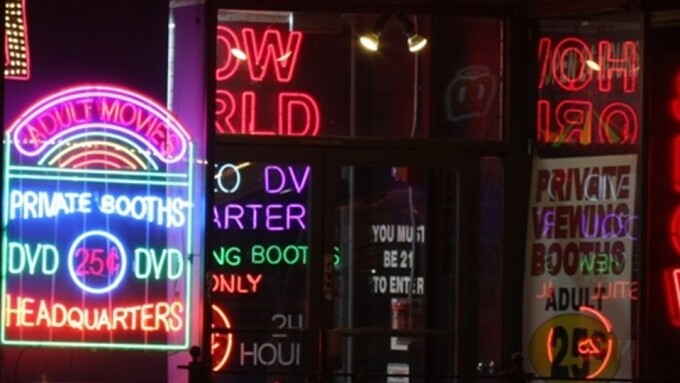NEW YORK — The lawyer representing scores of brick-and-mortar adult entertainment businesses facing an uncertain future in New York City plans to appeal to the nation’s highest court by the end of the year.
“We will be filing a petition for a writ of certiorari in the U.S. Supreme Court to challenge the New York Court of Appeals’ unconstitutional decision, which imposes severe burdens on bookstores and video stores in New York City that offer some adult material,” attorney Erica Dubno told XBIZ.
Dubno said that approximately 25 to 30 “60/40” bookstores and video stores are affected by the piece of legislation, which was given the green light in 2001.
“The law, which is being challenged, has the potential to affect all bookstores in New York City — including Barnes & Noble — that offer any adult or erotic material,” she said.
New York City’s 2001 law sought to plug a loophole after city leaders banned adult entertainment-oriented clubs and stores from residential and most commercial areas, as well as from within 500 feet of similar businesses, schools and places of worship.
That loophole involved the 60/40 test, which deemed businesses "adult" if at least 40 percent of their area or stock included sexually explicit materials or activities.
After the test was put into play, many businesses were found in “sham” compliance. So, the city decided that businesses offering specific services, such as topless dancing or peep booths, would qualify automatically as "adult.”
A Manhattan judge found the law unconstitutional in August 2012, and it was upheld by a divided state appeals court in July 2015.
In June, the Court of Appeals decided that previous decision took a "rigidly mechanical" approach that was in error.
“A store that stocks non-adult magazines in the front of the store but contains and prominently advertises peep booths is no less sexual in its fundamental focus just because the peep booths are in the back and the copies of Time magazine in the front,” the appeals court said in its June ruling.
“The same is true of the adult eating and drinking establishments. A topless club is no less an adult establishment if it has small signs and the adjoining comedy club, seating area, or bikini bar is easy to access,” the appeals court said in June.
As a result, the appeals court opinion effectively allowed New York City to enforce the 2001 law restricting sex shops.
The challenge to overturn the ruling at the U.S. Supreme Court is in the works, Dubno said.
But the New York attorney, name partner of Fahringer & Dubno, acknowledged that chances for a review are slim. The high court receives about 7,500 review requests each year and typically hears about 80 cases.
Dubno said she plans to argue that the adult entertainment businesses have been operating without causing harm or damage to property values.
“The city has agreed not to enforce certain provisions of the 2001 resolution, including the ban on private viewing booths, against existing businesses,” Dubno said. “The city may enforce the 2001 resolution against new bookstores or video stores.”








